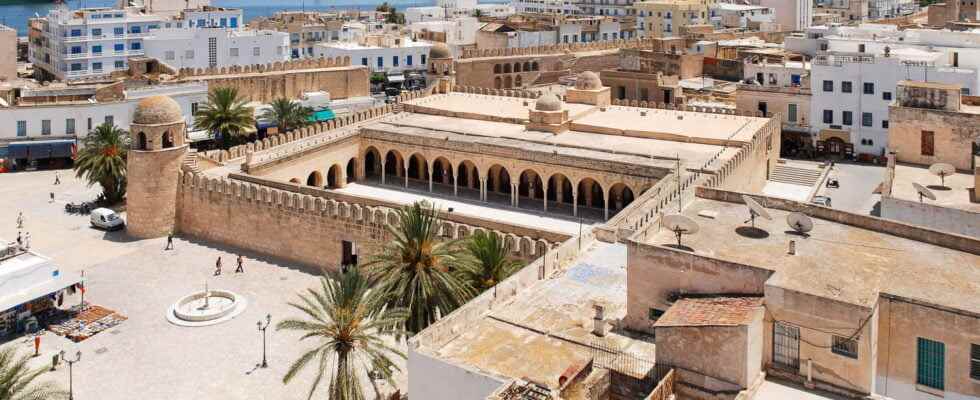The Tunisian government has decided to introduce a two-week curfew to help limit contamination. We take stock of the new rules and restrictions in Tunisia.
[Mis à jour le 17 janvier à 08h49] If the Tunisia has reopened its maritime, land and air borders, the health situation linked to Covid remains difficult in the country. Due to a further increase in contamination, the government has decided to establish a curfew from 10 p.m. to 5 a.m. for at least two weeks. Any public gatherings or demonstrations should also be postponed or cancelled. Since December 1, non-resident and non-vaccinated travelers are no longer allowed to travel to Tunisian soil. As for vaccinated travelers, they must present a negative PCR test -48 hours before departure instead of 72 hours before. Random antigen tests will be carried out on arrival, positive people will have to apply the mandatory quarantine.
If Tunisia has opened all its borders, including its air borders, France for its part has changed Tunisia from the red list to the orange list. Vaccinated travelers (complete vaccination schedule) are not subject to the compelling reasons regime. They must present, in addition to their vaccination certificate, a sworn statement attesting to the absence of symptoms of covid-19 infection and of contact with a confirmed case of covid-19.
Departing from Tunisia, travelers must present a negative PCR test dated less than 72 hours before the flight (for those who are not vaccinated or immunized). Each traveler undertakes to self-isolate for 7 days once they arrive in France, and to carry out a second PCR test at the end of this period.
The curfew extends from 10 p.m. to 5 a.m. throughout Tunisia for at least two weeks. Owners of restaurants and cafes of all kinds will have to raise chairs and prevent on-site consumption from 10 p.m.
Travel between regions is once again permitted within the territory. Family, private and public gatherings as well as gatherings in enclosed spaces remain prohibited, except for fully vaccinated people (in open spaces).
The country has not been confined since May 17, 2021. The partial lifting of the bans aimed at protecting the population from the risk of contamination has been done gradually. However, although a general confinement was decreed in May, it was not fully respected, due to a sling of part of the businesses. Today, however, most public and private places are officially open: places of worship, schools and universities have thus been able to reopen. Cafes and restaurants are also authorized to open, respecting a theoretical gauge of between 30 and 50% of their maximum capacity. However, each traveler is required to strictly apply the sanitary measures of the Tunisian tourism health protocol to fight against Covid-19. Controls on the territory have thus been reinforced, they mainly concern the wearing of masks in closed public spaces and transport. A toll-free number for people wishing to find out more about health restriction measures has been set up by the Tunisian government: 00216 80 10 11 11.
Yes, it is possible to access Tunisian beaches, throughout the territory. However, each governor has the possibility, if the health situation so requires, to isolate high-risk sources of contamination (cluster).
Several companies provide air links between Paris and Tunisia, including Air France, Tunisair, Nouvelair (a private Tunisian airline) and Transavia. The low-cost airline Transavia, a subsidiary of the Air France – KLM group, has even reinforced its flight program to ensure a maximum of connections.
Before the first boarding, travelers from France will therefore have to present their negative PCR test dated less than 72 hours before the departure of the flight (for children over 12 years old). For people who have been fully vaccinated, or who are immunized, a certificate bearing a QR code issued by the competent authorities allows access to boarding without having to present a PCR test. For travelers arriving in Tunisia, rapid tests, carried out randomly, may be carried out. If the test is positive, the passenger will then be immediately transferred to a dedicated center for isolation. Departing from Tunisia, travelers must also complete a contact form, required by the French authorities.
